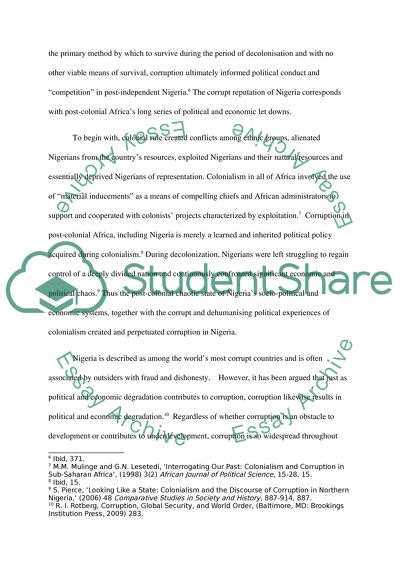Cite this document
(“Anti-corruption Efforts in Nigeria Essay Example | Topics and Well Written Essays - 4000 words”, n.d.)
Retrieved from https://studentshare.org/law/1400188-anti-corruption
Retrieved from https://studentshare.org/law/1400188-anti-corruption
(Anti-Corruption Efforts in Nigeria Essay Example | Topics and Well Written Essays - 4000 Words)
https://studentshare.org/law/1400188-anti-corruption.
https://studentshare.org/law/1400188-anti-corruption.
“Anti-Corruption Efforts in Nigeria Essay Example | Topics and Well Written Essays - 4000 Words”, n.d. https://studentshare.org/law/1400188-anti-corruption.


